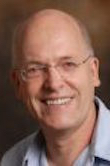GROUP LEADER: Prof. Jannie Hofmeyr
Position: Emeritus Professor
Office: 2009A, AI Perold Building
Phone: +27 21 808 2704
Email: jhsh@sun.ac.za
Apart from his roles in the Centre for Studies in Complexity and in the Fellowship and Programme Committee of STIAS, the Stellenbosch Institute for Advanced Study, Prof Jannie Hofmeyr is also a member of the Triple-J Group with Proff. Johann Rohwer and Jacky Snoep. The Triple-J Group group studies the control and regulation of cellular processes using theory, computer modelling and experimental approaches.

Main research interests
Studying the regulatory design of cellular processes using control analysis and computational analysis of kinetic models.
I have developed a number of conceptual tools for analysing regulation, such as co-response analysis, rate-characteristic analysis and supply-demand analysis (with Athel Cornish-Bowden, CNRS, Marseille). Recently suppy-demand analysis has been generalised to metabolic systems with arbitrary complexity (with Johann Rohwer).
Enzyme kinetics for systems biology
Construction of generic rate equations for enzymes that catalyse reversible multi-substrate, multi-product reactions and that exhibit cooperative binding of substrates, products and allosteric modifiers. This research builds on the reversible Hill equation, which I developed with Athel Cornish-Bowden.
Living Cell Theory
The aim is to develop a formal theory that explains what distinguishes living from non-living systems; together with the theory of evolution by natural selection it can form the basis for a complete systems biological view of life. The following working definition serves as a point of departure: A living cell is a material system that is organised in such a way that it can autonomously and continuously fabricate itself, i.e., the lifetime of the cell far exceeds the functional lifetimes of any of its parts. This axiom has already proved to be very productive and has led to the rudiments of a theory of biological fabrication that merges two seminal sets of ideas developed in the last century, namely metabolism-repair systems (Robert Rosen) and self-reproducing kinematic automata (John von Neumann). I presently collaborate with Olaf Wolkenhauer (Rostock) on the construction of abstract cell models.
The study of all codes of life, from the genetic code to the codes of culture. Of particular interest is the origin of organic codes during evolution and the necessity for organic codes in the functional organisation of living systems.

